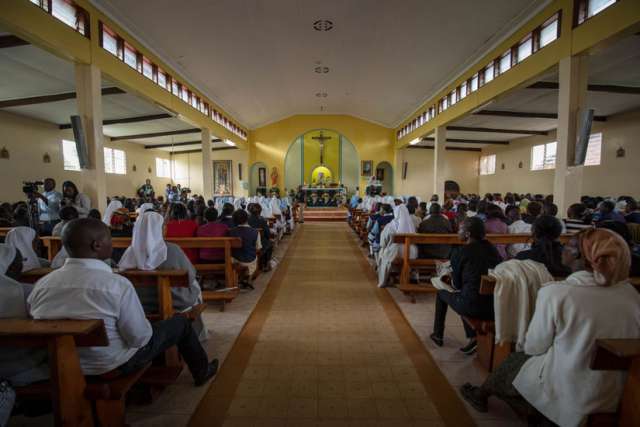The beautiful and dazzling portrayal of the heavenly court mirrors the glory, power and immensity of God. At first glance, it might appear that only the 144,000 marked with the seal of God are saved. But Revelation is filled with sacred numbers, especially seven and 12. The number 12 stands for the tribes of Israel, and the square of 12 is 144, so 144,000 represents multitude, completion and perfection. Multitudes worship before the throne and the Lamb, representing every nation, tribe, people and language. God’s salvation is truly universal in nature, for all humans are of equal worth in God’s eyes. Humanity, the world and God are all one — anything that separates or divides them is not from God. The multitudes cry out that “salvation belongs to our God,” something we all need to remember when we attempt to play God or run our lives apart from God. The ones robed in white are those who have come out of the great ordeal and washed their robes in the blood of the Lamb.
Although most of us do not suffer persecution, life itself can be a great ordeal. It is often painful and seemingly unfair. To go through this ordeal with one’s head held high, faith firmly rooted and love undiminished is the greatest victory possible. The Lamb — Jesus Christ — is the one who makes it possible. It is His blood that washes us from sin and the negative influences of this world, rendering us worthy to stand in God’s presence. The entire passage — and the entire book — encourages us to focus on the absolute power, sovereignty, mercy and majesty of God. Despite how things appear at times, it is God’s world, and sooner or later humanity will have to do things God’s way. If we fail to live in harmony with God, our happiness and even our survival are tenuous.
John celebrated the tremendous honour of being called God’s children. In his view, we are not born children of God but become so by means of love, faith and living in God’s Spirit. Children of God enjoy an intimate and unaffected relationship with God. Becoming a child of God gives us the opportunity to grow up and mature again, but this time under the formative influence of God’s laws rather than the human ways of the world. Wouldn’t it be nice to grow up again and to get it right this time! John only hints at even greater things that God has in store for us. That, however, will have to wait for the future. For now, it is enough to enjoy and live out the gifts that God has given us.
The tools for weathering life’s ordeals and becoming children of God are described in the Beatitudes. They are also the means by which we can make a lasting positive impact on the world. While admired by many, the Beatitudes are thought to be too difficult and unrealistic for use in the real world. As long as we continue to believe this, then they will be ineffective. A handful of individuals throughout history have taken them seriously and applied them, with tremendous results. But human responses to life are usually preferred, and these are often based on fear, competition, violence, lust for power and self-interest. As long as these paths are chosen, the world will remain in a wounded and bleeding state.
Choosing to live by the Beatitudes is opting for God’s way. They are expressions of humility, compassion, hunger and thirst for justice, peacemaking, purity of heart, non-violence, forgiveness and patience. Whenever these principles are put into practice — even imperfectly or on a very small scale — the door to God’s kingdom opens a bit wider. They need to be taken seriously and put into practice, not because they are “nice” but because they represent our only real hope for a just and peaceful world.


